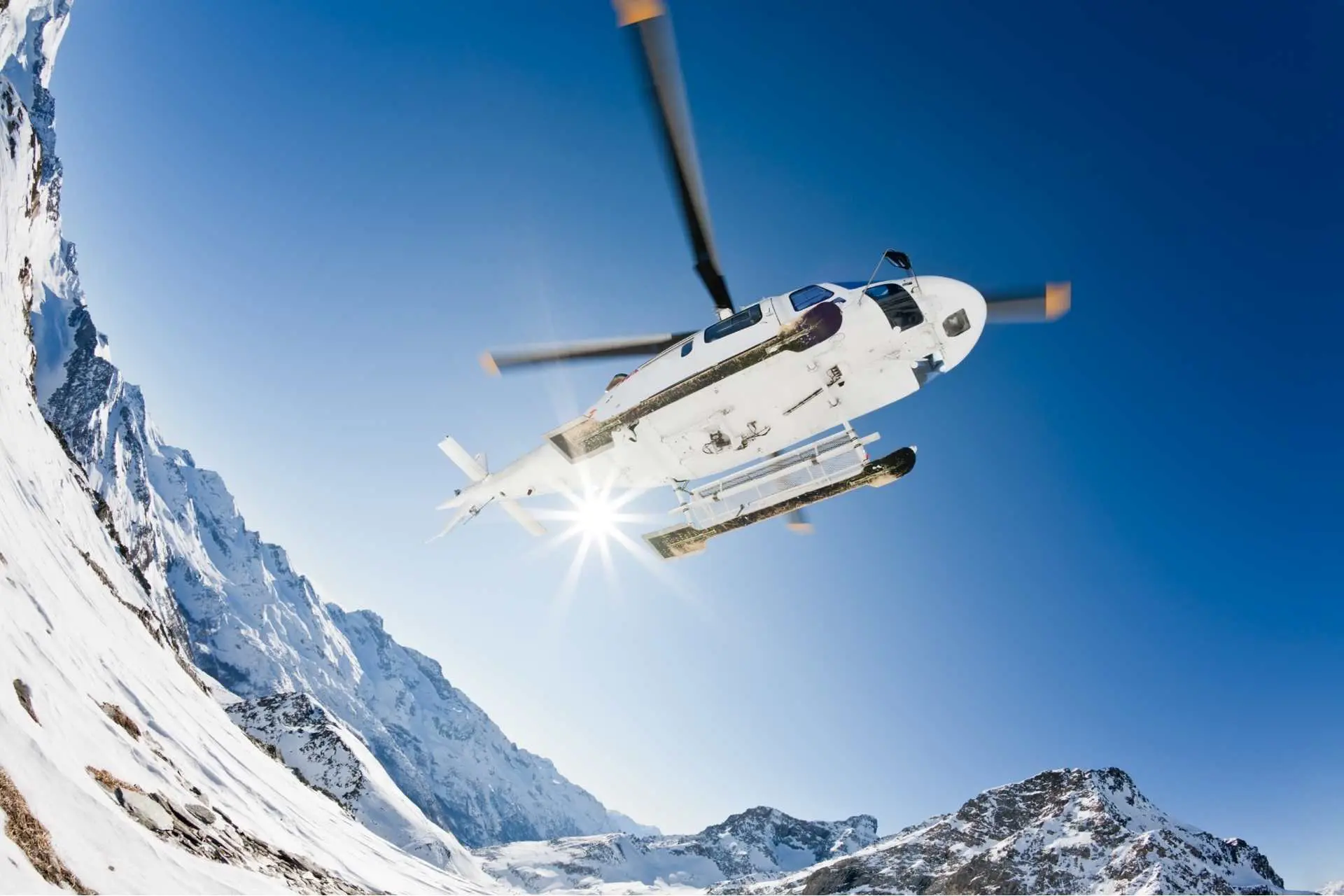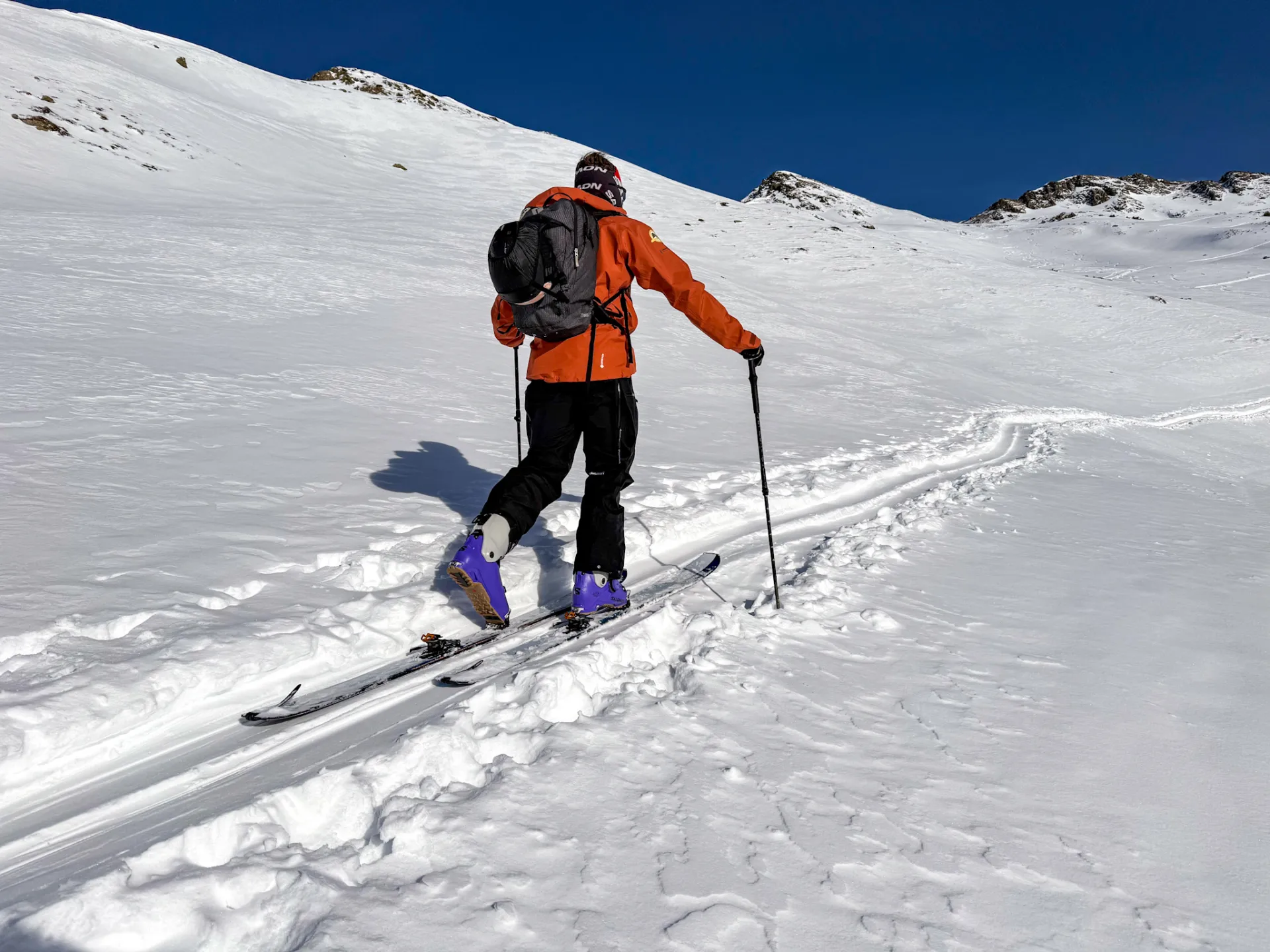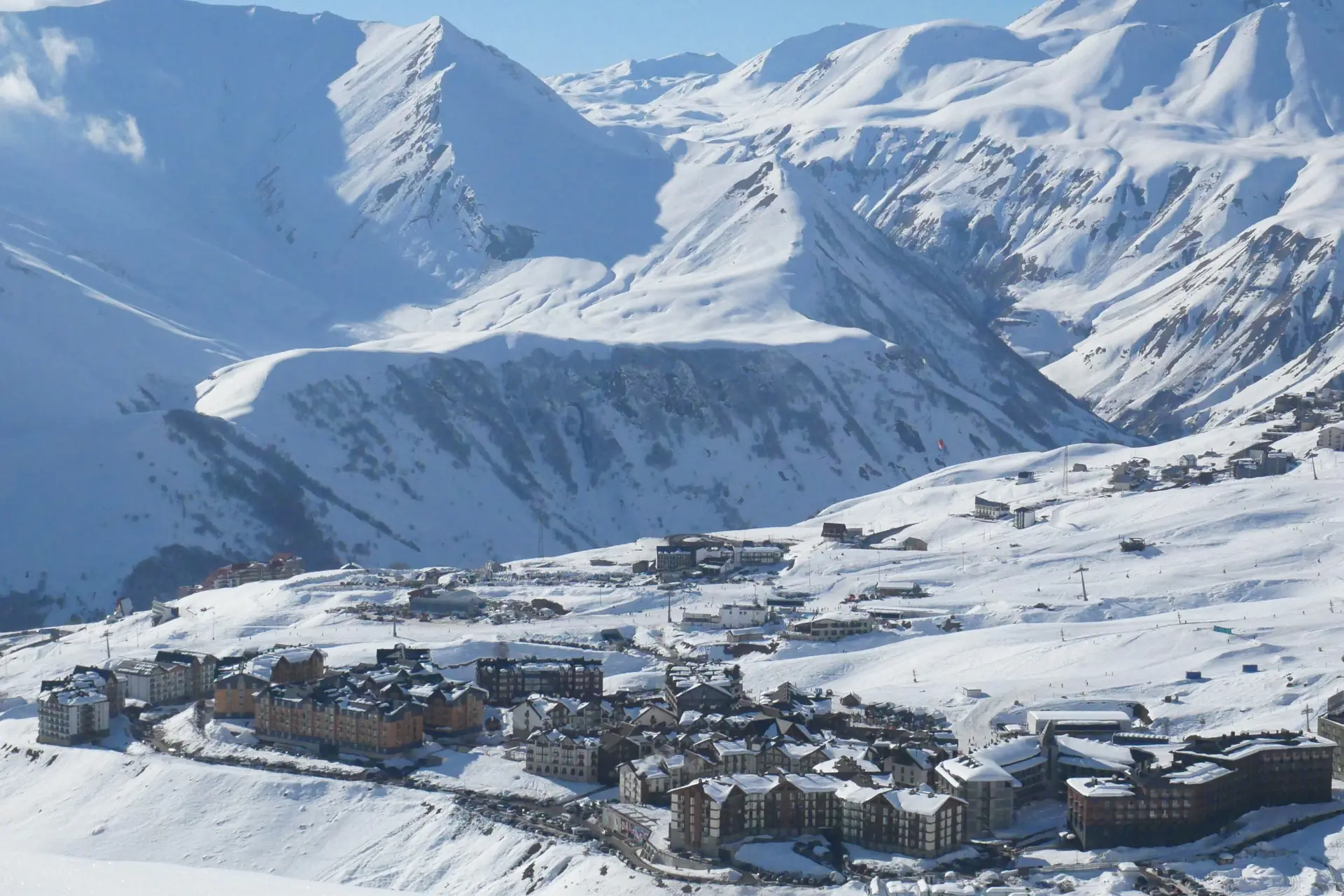
Heliskiing am Arlberg verlängert bis 2027
Die Vorarlberger Landesregierung hat die luftfahrtrechtliche Bewilligung für das Heliskiing in Lech am Arlberg bis 2027 verlängert.

The question "Who is allowed to guide ski tours?" concerns many recreational athletes. Those who join a guided ski tour trust in the competence, qualification and legitimacy of the guide. Last but not least, one's own safety depends on the decisions and leadership tactics of the ski tour guide.
Who is now allowed to lead ski tours?
In Austria, two professional groups are authorised to commercially guide ski tours. The first professional group are State-certified mountain and ski guides. The second group are Snow sports instructor and only those that have State diploma ski instructor training and ski guide training have completed.
State certified Mountain and ski guide must complete a demanding three-year training course. The candidates are trained in all facets of winter and summer alpinism. The training is preceded by a demanding aptitude test in which the candidates have to prove their above-average personal skills. Every graduate of the mountain guide training must be officially authorised. This automatically makes the mountain guide a member of the mountain guide association and he or she must take out a comprehensive insurance package - liability insurance alone is covered to the tune of 8 million euros. This not only covers the mountain guide in the event of an accident, but above all his or her guests.
Snowsport instructors also receive extensive alpine training as part of their education. Ski instructor candidate, the first level of training, receive safety training but are only allowed to teach in the organised ski area. National ski instructor complete a seven-day alpine course and are then authorised to guide on ski routes and on variants in the vicinity of pistes and lifts. However, national ski instructors are not allowed to ascend. Graduate ski instructor go through Another week Alpine training and deepen the topics of alpine safety once again. The scope of authorisation compared to the national ski instructor does not change yet. After passing the aptitude test, diploma ski instructors are then allowed to take part in the ski guide training. The training for Ski guide lasts about 24 days. Here, training in alpine safety is perfected. In addition to theoretical parts, ski guides are trained practically in the areas of ski touring and ski mountaineering, orienteering, practical snow and avalanche awareness and mountain rescue exercises. Ski guides are authorised to guide and accompany people on ski tours and downhill runs in the open ski area. The range of use extends from classic ski tours to ski mountaineering in glaciated areas and ski mountaineering with alpine difficulty levels. More information about the Ski guide training is available here.
Of course, the insurance aspect does not only apply to mountain guides. State-certified certified ski instructors & ski guides may ONLY work within the framework of a Ski school or with an upright Concession lead commercially. Why is this so? With the registration of a ski school (also a "one-man ski school") or the application for a concession, ski guides must also have a Insurance certificate produce.
"Black drivers are not only a safety risk. Without professional liability insurance, those affected are often left empty-handed after an accident with consequential damages!"
Is the Alpine Club allowed to lead ski tours?
The Federal Sports Academy Innsbruck, together with the Federation of Alpine Clubs of Austria, conducts a training of Instructors for high altitude ski tours by. Instructors for ski mountaineering tours are authorised to lead members of alpine clubs on ski mountaineering tours (climbing glaciers and short summit ascents on rock). The training is only open to people who work in clubs, schools or other non-profit organisations. honorary work. These persons are not authorised to guide for gain. The training to become an instructor for high-altitude ski tours lasts 12 days.
In addition to the people mentioned above, there is another group that is allowed to lead ski tours. In Austria, both the Austrian Armed Forces and the police train their own mountain guides. Police and army mountain guide perform tasks related to the fulfilment of official duties. Police mountain guides, for example, are responsible for the investigation of alpine accidents. Army mountain guides are special units deployed in the winter mountains. However, neither police nor army mountain guides are allowed to lead commercial ski tours.
The question "Who is allowed to lead ski tours?" is of course inextricably linked to the recognition of legitimate ski guides.
State-certified and authorised Mountain and ski guide must carry an identity card with them. They are also recognisable by the mountain guide badge of the International Mountain Guide Association. More info on the Recognition of mountain and ski guides is available here.
Also state-certified Certified Ski Instructor & Ski Guide must be able to identify themselves. Only if they have a valid ski school or ski instructor licence or are employed in a ski school do they have the ID card of the competent national ski instructor association with a valid annual stamp. The card also shows the snow sports instructor's qualification. State-certified ski instructors & guides may also wear a badge.

Die Vorarlberger Landesregierung hat die luftfahrtrechtliche Bewilligung für das Heliskiing in Lech am Arlberg bis 2027 verlängert.

Testbericht: Salomon Shift Alpha Boa 130 – Der präzise Freerider für ambitionierte Skifahrer

Gudauri has become an insider tip for freeriders in recent years. Read now why a freeride trip to Georgia is worthwhile!

Comfortable, congestion-free and climate-friendly journey with the ÖBB Nightjet. Now in an attractive combination ticket incl. ski pass.

Ski touring in Norway is something special. 5 reasons why it should definitely be on your to-do list.
No comment yet, add your voice below!